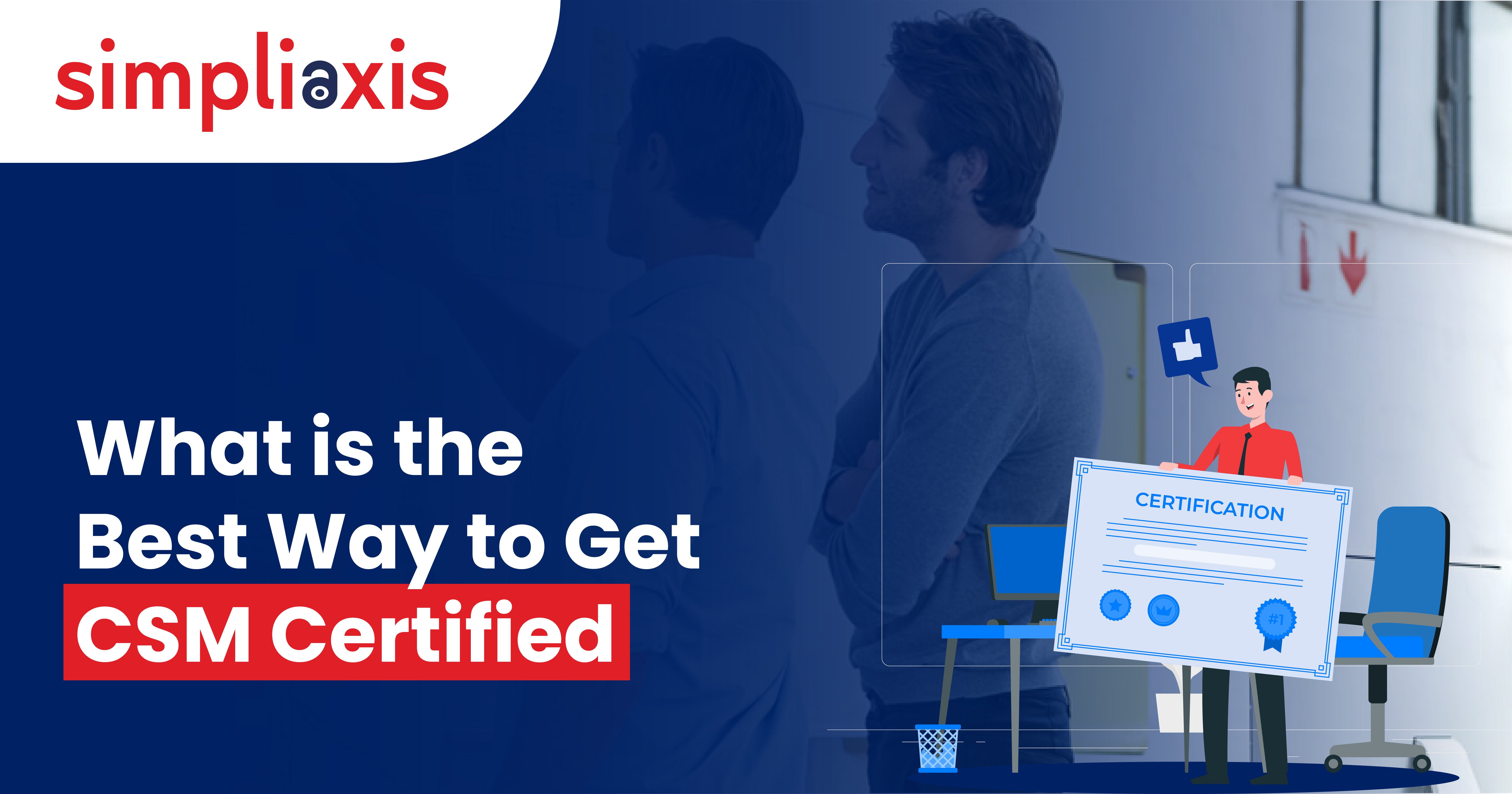Certified Scrum Master® (CSM) certification is highly regarded in the field of Agile and Scrum, and it can significantly boost your career in project management and software development. However, navigating the path to becoming a CSM can be challenging without proper guidance. In this comprehensive guide, we will explore the best ways to get CSM certified, step by step, so you can make better and informed decisions before embarking on your journey towards becoming a Certified Scrum Master.
What is a CSM® Certification?
Before diving into the process, it's essential to clearly understand what CSM® certification entails. A Certified ScrumMaster is a key role in Scrum teams, responsible for facilitating and ensuring the Scrum process is followed effectively. CSM training signifies your knowledge of Scrum principles and your ability to execute them in real-world situations.
What are the Prerequisites for CSM® Certification?
Thankfully, there are no strict prerequisites for CSM® certification. You don't need prior experience or formal education to get started. However, it's beneficial to have a basic understanding of Agile and Scrum concepts before pursuing this certification.
Selecting the right training provider is a crucial step in your journey to becoming a CSM. There are many training providers available, but the Scrum Alliance is the official certifying body for CSM. Look for training providers that are accredited by the Scrum Alliance to ensure the quality of your training.
Process to get CSM® Certification
The best way to get certified as a scrum master or achieve CSM® certification is complete a training from a REP and pass the CSM certification exam.
Enrolling in CSM Training
Once you've chosen a training provider, you can enroll in their CSM® certification training program. The training typically lasts for two days and covers essential Scrum principles, roles, and practices. During the training, you'll have the opportunity to learn from experienced Scrum trainers and interact with fellow participants.
Attending the CSM Course
Attending the CSM course is where you'll gain the knowledge and skills required for the CSM® certification. Here's what you can expect during the course:
- Interactive Sessions: The course is highly interactive, with discussions, group activities, and case studies to help you understand Scrum concepts better.
- Role-playing: You'll have the chance to participate in role-playing exercises that simulate real-world Scrum scenarios, allowing you to practice your skills.
- Q&A Sessions: The instructor will answer any questions you have about Scrum and its implementation.
After completing the CSM course, you'll need to pass an online exam to become a Certified ScrumMaster. The exam consists of 50 multiple-choice questions and has a time limit of 60 minutes. To pass, you need to score at least 37 correct answers (passing score is 74%).
CSM Exam Overview
Exam Format | Multiple-choice questions |
Number of Questions | 50 |
Time Limit | 60 minutes |
Maintaining Your CSM® Certification
Once you become a Certified ScrumMaster, your certification is valid for two years. To maintain your certification, you'll need to earn Scrum Education Units (SEUs) and renew your certification through the Scrum Alliance. SEUs can be earned through various activities, such as attending Scrum-related events, reading books, and participating in webinars.
Benefits of CSM® Certification
Obtaining CSM® certification offers numerous benefits, both professionally and personally:
- Enhanced Career Opportunities: CSM® certification is recognized and valued by employers worldwide. It can open up new job opportunities and potentially lead to higher salaries.
- Improved Project Management Skills: CSM training equips you with valuable project management skills, making you a more effective leader and problem solver.
- Networking Opportunities: During the training and certification process, you'll have the chance to network with professionals in the Agile and Scrum community, expanding your professional circle.
- Personal Growth: CSM® certification is not just about a career; it's also about personal growth. You'll gain confidence in your abilities and become a better communicator and team player.
Lastly!
Becoming a Certified ScrumMaster is a significant step in your career, and it can lead to exciting opportunities in project management and Agile development. To recap, the best way to get CSM certified involves understanding the certification process, selecting an accredited training provider, enrolling in CSM training, attending the course, passing the exam, and maintaining your certification through ongoing education. Remember that CSM® certification is an investment in your future, and the knowledge and skills you gain will benefit you throughout your career.
















